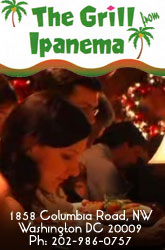In a Historic Move, Russia Is Formally Invited to Join the WTO
December 26, 2011Ministers at the World Trade Organization’s 8th Ministerial Conference in Geneva, Switzerland, on Dec. 16 formally invited the Russian Federation to join the WTO. This move comes after many years of contentious bargaining, and the WTO statement announcing the accession expresses hope that “Russia’s accession to the WTO will strengthen the multilateral trading system, making the WTO a more universal organization.” That statement further notes that Russia will have to ratify the deal within the next 220 days and would become a fully-fledged WTO member 30 days after it notifies the ratification to the WTO. “This is a historic moment for the Russian Federation and the rules-based multilateral trading system. After an 18-year marathon, the finish line has been crossed. This is a double win for Russia and the WTO,” said WTO Director- General Pascal Lamy. Russian Economic Development Minister, Elvira Nabiullina, said: “This is an event we have been awaiting for a long time. In these difficult times, risks of protectionism are looming on the horizon and Russia will contribute to combat protectionism as a WTO member.” This accession is a starting point—not a finishing line—for Russia, she said. Following the meeting, Pascal Lamy and Elvira Nabiullina officially signed the protocol of accession. U.S. Trade Representative Ron Kirk issued a statement welcoming the decision to admit Russia. “Russia’s accession is good for the United States, good for Russia, and good for the WTO. Russia's market access commitments and the steps that it is taking with regard to intellectual property rights, information technology, SPS, transparency, and the full range of WTO rules and disciplines will create a new and stronger basis for conducting trade relations between our countries,” Kirk said. “WTO accession also clearly advances Russia's own objectives in terms of diversification and modernization of its economy, and integration in the global economy. Russia is growing, and with WTO Membership that growth will be enhanced, solidified, and made more sustainable. In his statement on the progress of the WTO accession talks, President Obama thanked President Dmitry Medvedev of Russia for taking the steps to complete entry into the WTO. Among other things, Obama said: From day one of its membership in the WTO, Russia will be required to comply with WTO rules on the protection and enforcement of intellectual property rights, including with respect to key rights relied on by U.S. creative and innovative industries. Russia’s membership in the WTO also will benefit American companies and their workers by integrating Russia into a system of rules governing legal transparency and trade behavior and providing the means to enforce those rules. Upon Russia’s accession, the United States will be able to use WTO mechanisms, including dispute settlement, to challenge Russia’s actions that are inconsistent with WTO rules. All of these benefits also apply to Russia’s other WTO trading partners, including Georgia, which concluded a far-reaching agreement with Russia yesterday for monitoring trade between their two countries. I now look forward to working with Congress to end the application of the Jackson-Vanik amendment to Russia in order to ensure that American firms and American exporters will enjoy the same benefits of Russian WTO membership as their international competitors. Russia’s WTO accession would be yet another important step forward in our reset of relations with Russia, which has been based upon the belief that the United States and Russia share many common interests, even as we disagree on some issues. Whether cooperating to supply our forces in Afghanistan, securing nuclear materials, or achieving the New START Treaty, the United States and Russia have demonstrated the ability to produce “win-win” outcomes on security issues. Russia’s dramatic step today towards joining the WTO underscores our ability to cooperate also on economic issues of mutual interest. Intellectual property concerns have long been a major point of contention blocking Russia’s membership in the WTO and will be closely monitored. Indeed, the USTR’s February 2011 Notorious Markets Report noted that “pirated goods are widely and openly available” at Moscow’s Savelovskiy electronics market and that the Russia-based Rutracker website, known for infringing activities, is among the 300 most visited sites in the world. The WTO in a November 2011 statement outlined Russia’s intellectual property and transparency commitments under this agreement as follows: Protection of trade-related intellectual propertyThe Russian Federation would fully apply the provisions of the WTO Agreement on Trade-related Aspects of Intellectual Property Rights including provisions for enforcement, without recourse to any transitional period. The Russian government would continue to take actions against the operation of websites (with servers located in the Russian Federation) that promote illegal distribution of content protected by copyright or related rights. The Russian Federation would investigate and prosecute companies that illegally distribute objects of copyright or related rights on the Internet. By the time of its accession, the Russian Federation would apply all rules of the Berne Convention for the Protection of Literary and Artistic Works. TransparencyThe provisions of the WTO Agreement would be applied uniformly throughout the Russian Federation territory, including in regions engaging in frontier traffic, special economic zones and other areas where special regimes for tariffs, taxes and regulations could be established. All legislation affecting trade in goods, services and intellectual property rights would be published promptly, consistent with WTO requirements. The Russian Federation would regularly update its official publications including websites and make these laws readily available to WTO members, individuals and enterprises. To improve access to official publications, the Russian Federation would establish an enquiry point providing assistance to members and all other stakeholders. In particular, the Russian Federation would publish all legislation, affecting trade in goods, services, or intellectual property rights, prior to their adoption and would provide a reasonable period of time, no less than 30 days, for members to comment, except for emergency cases, national security, monetary policy, measures whose publication would impede law enforcement, be contrary to the public interest, or prejudice the commercial interest of particular public or private enterprises. No legislation affecting trade in goods, services or intellectual property rights would become effective prior to publication. The Russian Federation would provide annual reports to WTO members on developments in its on-going privatization programme for as long as it would be in existence. Lists of goods and services subject to state price controls would be published in the Rossiiyskaya Gazeta from the date of accession. Russia would apply price controls on certain products and services, including natural gas, raw diamonds, vodka, water supply services, gas transportation services, baby food, medical goods, public transport services and railway transportation services. Price control measures would not be used for purposes of protecting domestic products, or services provided.
|


